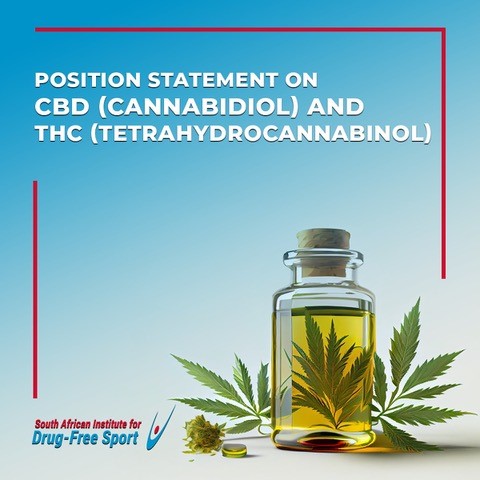L Pillay, MD, MSc; C Thompson, MD, MPhil; C Tabane, MD, MSc; J Kirby, MD, MSc; S Hendricks, PhD; J Swart, MD, PhD; DC Janse van Rensburg, MD, PhD; P Zondi, MD, MSc; A Rotunno, MD, MSc; D Bayever, BPharm
In recent years, there has been an increasing debate and legislative review related to Cannabidiol (CBD) and Tetrahydrocannabinol (THC).
CBD and THC are the active ingredients in the cannabis plant, commonly known as marijuana. Due to various health concerns and its neurological effects, especially the behavioural component (e.g. temporary neurocognitive dysfunction and delayed physical responsiveness), it is prohibited in most sporting codes and considered an illegitimate recreational substance in many countries.
The recent move toward legalising CBD and THC in some countries or regional states has gained significant traction, with proponents advocating for regulatory changes that will enable (1) personal use, (2) medicinal use and (3) cultivation. In countries where the substance is decriminalised, these products are readily available at specialist distributors, chain stores, pharmacies and online resellers. This availability to the general public may expose the athletic population to its potential use, which may result in adverse analytical findings in doping control tests (a “positive test”). These products are marketed as treatment options for various medical conditions including, but not limited to, stress, anxiety, chronic pain syndromes, skin conditions, sleep disorders, cancer chemotherapy, and nausea.
In sport, the use of cannabis is prohibited in-competition and classified as a Substance (S8) on the World Anti-Doping Code (WADC) International Standard Prohibited List for 2023. As regulations related to legality and use are reviewed country by country, it is important to establish a view from a National Anti-Doping Organisation (NADO). This will assist athletes in making informed decisions about the personal use of cannabis while helping them to understand the potential risks related to sport participation.

